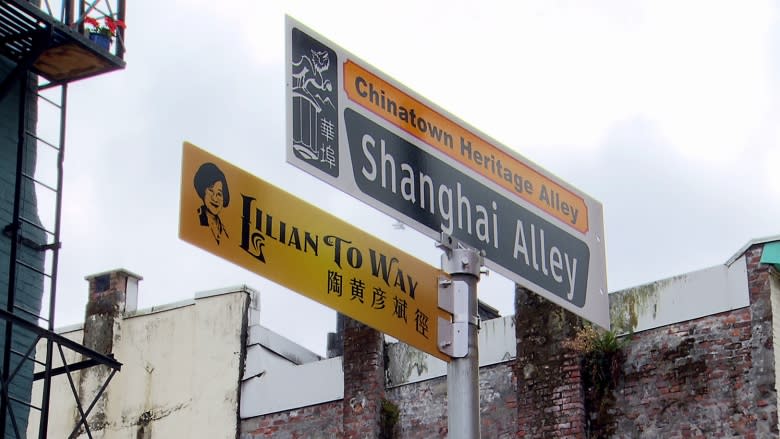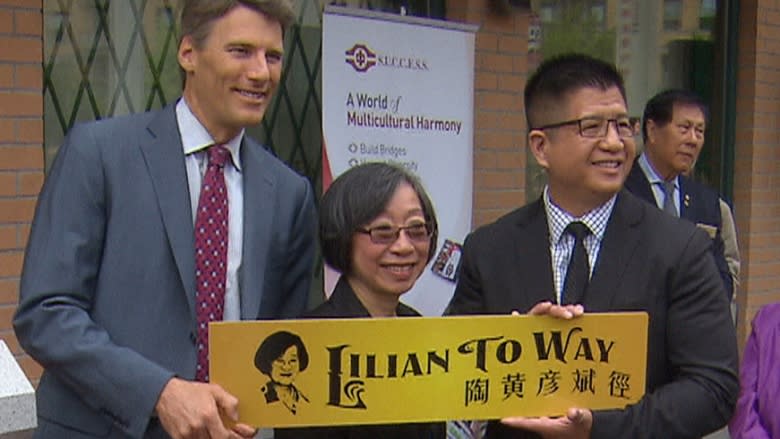Vancouver city councillor wants city signage to reflect region's diversity
Vancouver Councillor Andrea Reimer is introducing a new motion before city council today to better reflect the diversity of the city through place names.
Her motion prioritizes naming currently unnamed city assets — like streets, lanes, plazas, and some buildings — to better reflect the city's ethnic, religious and gender diversity.
It also specifically recognizes Indigenous contributions to the city and directs staff to create specific guidelines to guide place naming that recognizes both Indigenous and settler history.
Schools, parks and libraries are named through a separate process.
'Advancing reconciliation'
Reimer's motion is part of Canada's 150th anniversary celebrations and Vancouver's commitment to "significantly advance reconciliation."
"If you look at it, in a very short window of time — literally a few decades — people came onto this land, erased all the place names on this land," she said.
Reimer pointed out the city has lagged behind when it comes to recognizing the contributions of women, minorities, and Indigenous communities.
Vancouver only unveiled its first street named after a Chinese-Canadian last year, despite the over 100 year history of the Chinese community in the city.
"The impact of that is felt by many different cultures who came here who don't feel visible. Most profoundly is hearing from the First Nations what it's like to become invisible in your own country."
Symbols have an impact
Khelsilem, a SFU lecturer in the Squamish dialect, said the motion was "wonderful."
He says recognizing Indigenous history through signage is a significant acknowledgement of the people who used the land before colonization.
For instance, he says the way the Squamish language has been used in highway signs on the Sea-to-Sky highway is a good example of how to make the presence of Indigenous people in that region felt.
Making Indigenous place names a normal occurrence could foster reconciliation for future generations, he added.
"Symbols do have an impact on our communities," he said.
"What I'm thinking of is 50 or 100 years down the road where the communities of Vancouver have adapted into their vernacular ... The same way that many people can say Nanaimo and Coquitlam and Tsaswassen which are all Indigenous words."
Sensitive process
Reimer said she understood the process of naming is a sensitive one and expects the issue will be an emotional one.
While the motion refers to unnamed city assets, it will also determine whether — if ever — specific names should be replaced.
"People do get invested in the names of things," Reimer said.
"Attaching a name to a physical asset is more permanent than we are as the human beings who represented those names ... [but] I want to live in a city where that history isn't erased and is made visible again."
With files from the CBC's On The Coast and The Early Edition
To hear the full interview listen to audio labelled Vancouver city councillor wants city signage to reflect region's Indigenous history and Andrea Reimer on new naming motion



